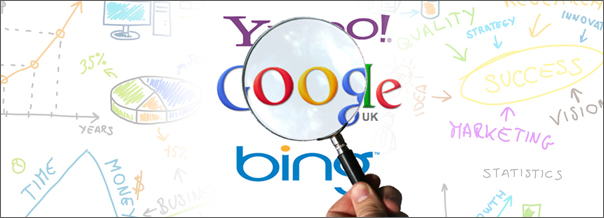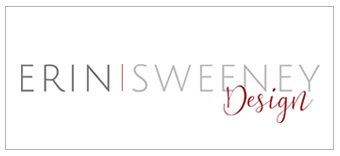Keywords…and other great things that help search engines locate your site!
 Working exclusively with small business owners, and as a small business owner myself, I know what a struggle (and expense!) it is to promote your business. Clients come to me wanting a website that not only represents their company and brand, but will also be seen by potential customers. This is where search engines come into play.
Working exclusively with small business owners, and as a small business owner myself, I know what a struggle (and expense!) it is to promote your business. Clients come to me wanting a website that not only represents their company and brand, but will also be seen by potential customers. This is where search engines come into play.
Search engines, such as Google, find your site. Every small business owner wants their website to show up at the top of search engine page results. How can that happen without having to pay for it? It all begins with the content of your site and the inclusion of keywords. In this article, I’ll explain how to use keywords, markup and document interlinking to optimize your site and make it SEO-friendly….your first steps to being found!
Keywords
Your website can have all the bells and whistles in the world, but if search engines can’t find keywords in your content, many potential customers will never see it. Keywords are the words and phrases that users put into a search when looking for information online. How do you know what keywords or phrases will direct users to your website? This takes a bit of research. Sites such as Adwords External and Google Insights can assist you with keyword trends and help you to determine the keywords and phrases to use for your content.
Once you’ve established the keywords and phrases to use, follow these guidelines:
- Make sure the keyword or phrase (or a variation of) appears in the page title. It is recommended that page titles be a minimum of 40 characters.
- Identify 2-4 keyword phrases (2 or more words long) to be used on each page since single keywords tend to be more competitive. Consider that when a user is entering phrases that are 3 or more words long into a search engine, they are looking for very specific information. This is the customer that you want to find you. One who is doing a more focused search.
- Place the keyword in the first paragraph of the copy. So the topic of the page is immediately clear.
- Use keywords and phrases throughout your page content while writing in a natural style. Don’t overload the copy with keywords to the point that it appears artificial. Search engines can tell when the page is stuffed with extra keywords and will weed your page out. Also, it is recommended that you use a minimum of 300 words per page and write in short sentences using easily understood words for optimization.
Markup
The second issue to consider when optimizing your site content is the way the pages are organized.
Follow these tips for search-engine friendly ways to create your page:
- Construct page titles carefully. Page titles are the most valuable real estate as far as search engines are concerned. Titles need to include primary keyword phrases and convey the key content of the page.
- Only include one <H1> tag per page. Make sure it contains the primary keyword phrase and conveys the central message of the page (page titles use H1).
- Include subheads that will utilize the <H2> tag. Keep them short and sweet. Use subheads to organize the page for SEO and readability. Also, when using subheads, limit them to no more than 4 levels of subheads, and avoid putting H1 and H2 headings adjacent to one another.
- Make sure the content of the page is well organized. It is recommended to create an outline as you would do when writing a paper. The easier it is for the search engine to scan your page, the more likely it will be able to locate keywords.
- Use top keyword phrase in the very first paragraph. Make it nice and easy for the search engine to locate it.
- Use unique captions for each image. Another opportunity for keywords!
- Create a unique meta description for each page. Meta descriptions are short phrases (up to 150 characters) that describe your site. It appears below the title of your document in search engine results. Make them factual, but also inviting so it will encourage readers to read the page (click on the link!)
Document Inter-Linking
Using hyperlinks on your page will help search engines locate appropriate information that a user is searching for. Link building is one of the most important factors for SEO. Interlinking your web pages and blog posts are a sure way to give your web presence a real boost. Again, this is all related to easy navigation on your site, both for humans and search engines.
Follow these guidelines for utilizing links:
- Optimize anchor text. Avoid phrases such as “Read more here” or “Follow this link”. Instead, this is another opportunity to use keywords and phrases to direct users to your site. Doing this allows both search engines and readers to see your keyword as the linked text which will increase your rank.
- Link to other pages on your site. Linking internally increases the keyword relevancy of all pages within your site.
- Good (aka easy) navigation. Interlink your web pages in a way that makes it easy for people to go from one page to another. Link directly to a product description to the relevant product page, or link directly to a blog page. This allows users to easily find what they need and improves their overall experience.
- Include breadcrumbs. Breadcrumbs are navigation aids that help visitors see the path to their current location (i.e., Home page -> Category page -> Subcategory page). Each page is linked so that people can easily get back to the previous page, and the path is typically found near the top of a page.
- Link your blog posts: Use tags, categories, archives, anything that will link your blog posts to your page content. Content interlinking is one of the best ways to provide your readers with tons of relevant content.
So, now that you have some work ahead of you, grab a pen, some paper and start figuring out those keywords. And remember, this is just a start. Showing up at the top of a search takes time. The more often your information is found by search engines on the web, the higher you’ll rank. Starting with some great, well-organized, easy to read content that is keyword rich will set you on the path to a strong web presence. Good luck!


